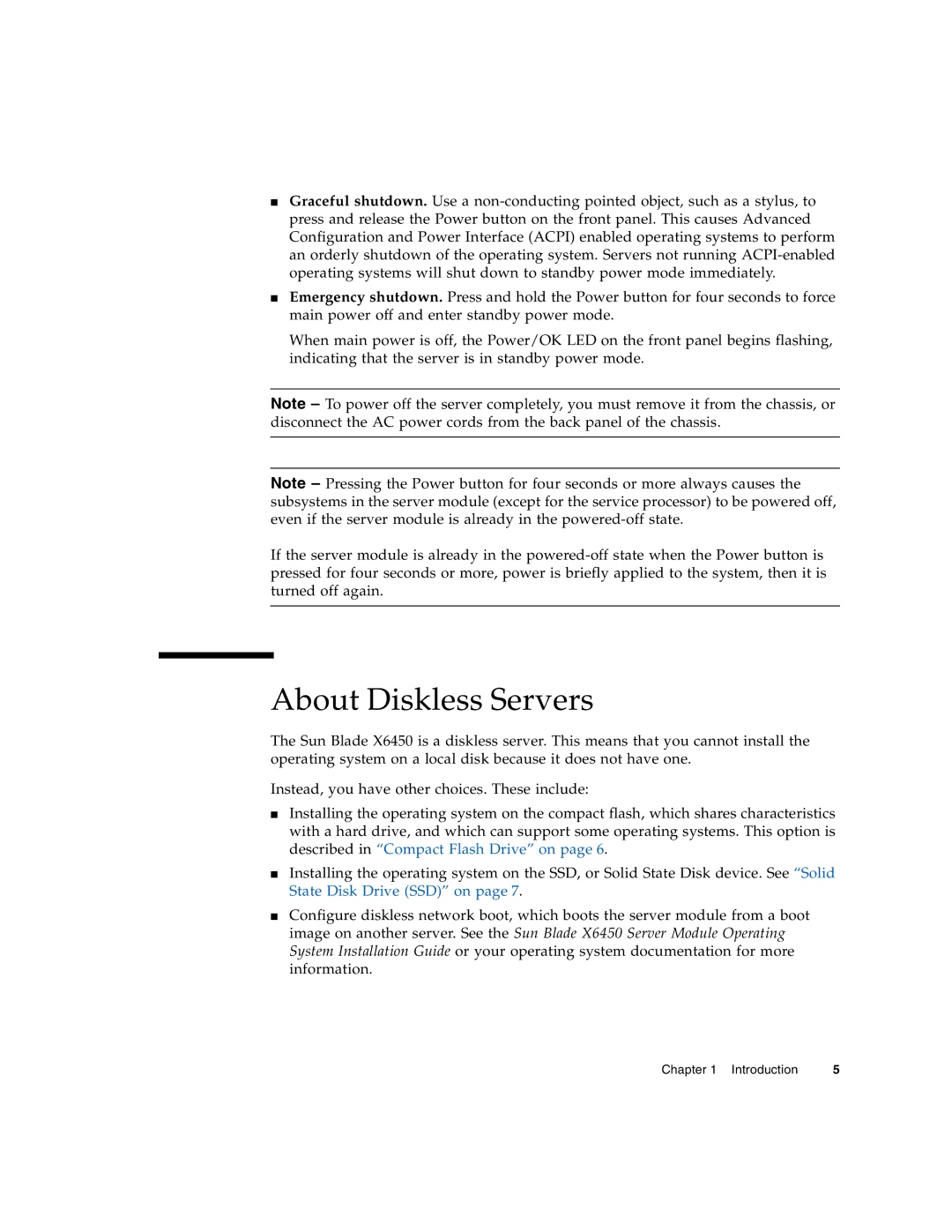
■Graceful shutdown. Use a
■Emergency shutdown. Press and hold the Power button for four seconds to force main power off and enter standby power mode.
When main power is off, the Power/OK LED on the front panel begins flashing, indicating that the server is in standby power mode.
Note – To power off the server completely, you must remove it from the chassis, or disconnect the AC power cords from the back panel of the chassis.
Note – Pressing the Power button for four seconds or more always causes the subsystems in the server module (except for the service processor) to be powered off, even if the server module is already in the
If the server module is already in the
About Diskless Servers
The Sun Blade X6450 is a diskless server. This means that you cannot install the operating system on a local disk because it does not have one.
Instead, you have other choices. These include:
■Installing the operating system on the compact flash, which shares characteristics with a hard drive, and which can support some operating systems. This option is described in “Compact Flash Drive” on page 6.
■Installing the operating system on the SSD, or Solid State Disk device. See “Solid State Disk Drive (SSD)” on page 7.
■Configure diskless network boot, which boots the server module from a boot image on another server. See the Sun Blade X6450 Server Module Operating System Installation Guide or your operating system documentation for more information.
Chapter 1 Introduction | 5 |
